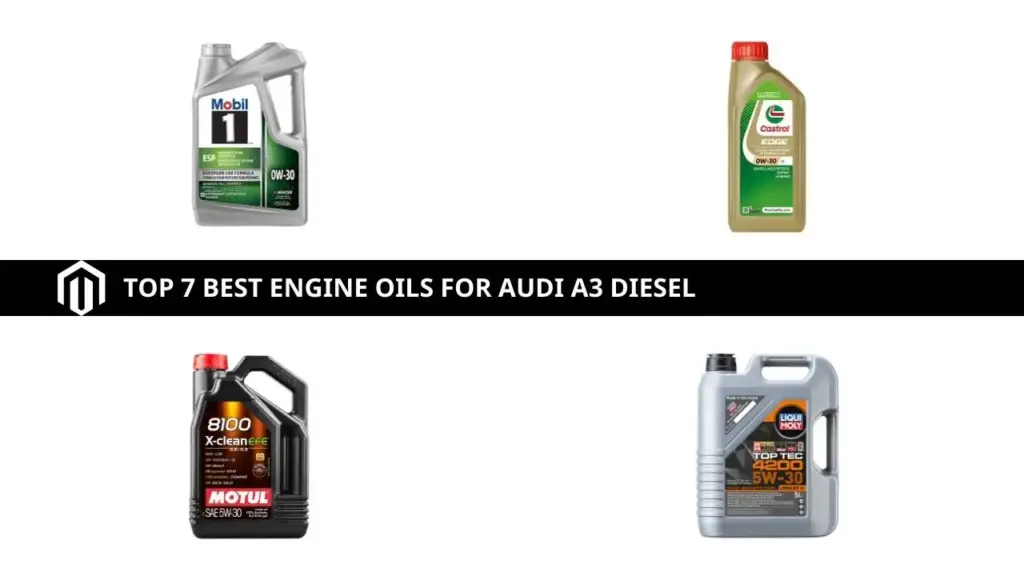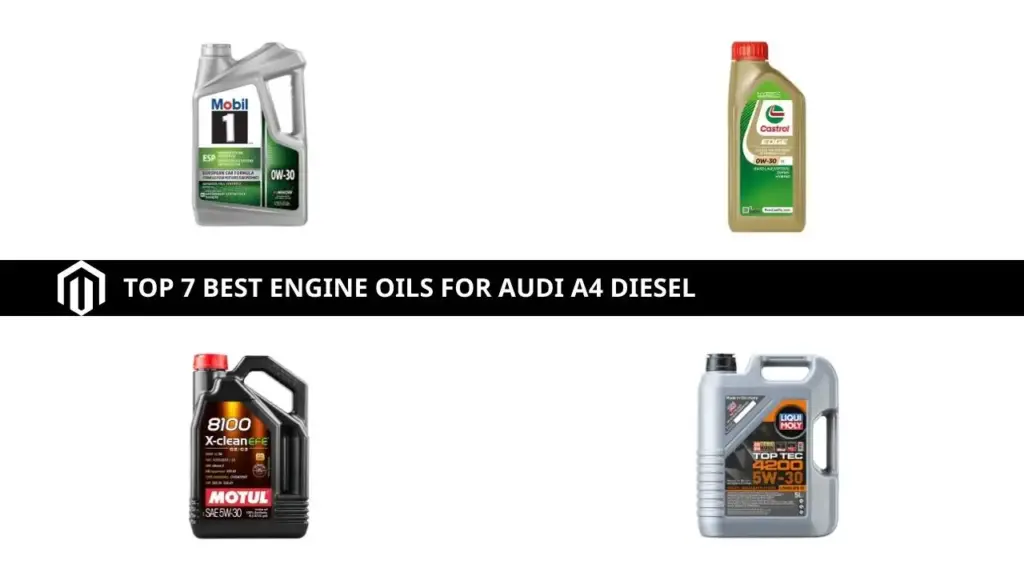You may also like:
Avoid the 2008, 2009, 2011, 2013, and 2017 Audi A4 model years. The 2011 A4 ranks as the worst overall due to catastrophic oil consumption requiring $6,000+ engine repairs at just 65,000 miles[1]. The 2009 model has the highest total complaint volume, while 2008 and 2013 suffer from similar engine and drivetrain issues[2]. If you’re shopping for a used A4, stick to the 2014-2016 or 2018-2020 model years for the best reliability[3].
Audi A4 Years to Avoid: Complete List
| Model Year | Generation | Primary Problems | Avg Repair Cost | Avoid Rating |
|---|---|---|---|---|
| 2011 | B8 (4th) | Excessive oil consumption | $6,000[1] | Worst |
| 2009 | B8 (4th) | Oil consumption, engine failure | $5,500[2] | Very Bad |
| 2013 | B8 (4th) | Engine failure | $8,800[1] | Very Bad |
| 2008 | B7 (3rd) | Oil leaks, airbag recalls | $4,000[2] | Bad |
| 2017 | B9 (5th) | Water pump, thermostat leaks | $1,000-$4,300[4] | Moderate |
| 2003 | B6 (2nd) | Engine, timing issues | $6,500[1] | Bad |
The complaint numbers don’t tell the whole story. Repair costs and failure mileage matter more—and certain years devastate owners’ wallets far worse than others.
2011 Audi A4: The Worst Year to Buy
The 2011 A4 earned CarComplaints’ designation as the single worst model year in A4 history[1]. And that reputation is well-deserved.
The Oil Consumption Disaster
The 2011 A4’s 2.0-liter TFSI engine burns oil at alarming rates. We’re not talking about topping off a quart between changes—owners report adding oil every 800 to 1,000 miles under normal driving[5]. The culprit? Worn piston rings that allow oil to bypass into the combustion chamber.
This isn’t just inconvenient. Excessive oil consumption leads to fouled spark plugs, damaged catalytic converters, and eventually complete engine failure. The average repair cost hits $6,000 at just 65,000 miles—essentially a new engine[1]. Consumer Reports gave the 2011 A4 a dismal 1 out of 5 for owner satisfaction[3].
The 2023 Audi A4 and 2024 Audi A4 have largely resolved these issues, but the 2011 remains a minefield for used car buyers.
2009 Audi A4: Most Complaints Overall
While the 2011 gets the “worst” label for repair severity, the 2009 A4 holds the record for total complaint volume[1]. This was the first year of the B8 generation, and first-year growing pains hit hard.
What Went Wrong
The 2009 A4 inherited the oil consumption problems that would plague the generation for years. Owners reported similar excessive oil burning, with repair costs averaging $5,500[2]. But the 2009 added fuel efficiency complaints to the mix—drivers consistently got less than 300 miles per tank, a significant drop from the expected 415-mile range[2].
Five separate airbag recalls affected this model year, ranging from corrosion-related failures to delayed deployment and even explosion hazards[2]. The lesson here matches what we’ve seen with other German luxury brands: never buy the first year of a new generation.
2008 Audi A4: End of Generation Problems
The 2008 A4 sat at the tail end of the B7 generation, yet still accumulated 20 complaints—more than you’d expect for a “mature” platform[2].
Persistent Oil Issues
Like its successors, the 2008 A4 struggled with oil. Leaking oil, miscalculating oil levels between changes, and general oil system unreliability frustrated owners[2]. Climate control failures also emerged after a few years of ownership.
The same five airbag recalls that hit 2009 models applied to 2008 as well[2]. If you must buy a B7-generation A4, the 2008 model year is technically the most reliable option—but “most reliable of the unreliable” isn’t exactly a ringing endorsement.
2013 Audi A4: Expensive Engine Failures
The 2013 model year brought some improvements to the B8 platform, but major engine issues persisted.
Engine Failure at High Mileage
CarComplaints rates the 2013 A4’s engine failure problem as the second-worst issue across all A4 model years[1]. The average repair cost reaches $8,800 at 91,000 miles—the most expensive single repair in A4 history[1].
Timing chain problems and piston failures plagued this year, along with the continued oil consumption issues that defined the B8 generation[6]. Consumer Reports gave both the 2011 and 2013 models a 1 out of 5 reliability score[7]. The 2014 model finally turned things around, earning a 3 out of 5 rating and representing the first dependable B8 A4[7].
2017 Audi A4: First-Year B9 Problems
The fifth-generation B9 A4 launched in 2017 with modern technology and refined styling. It also launched with predictable first-year bugs.
Cooling System Failures
The 2017 A4’s most common issues center on the cooling system. Water pump failures and thermostat housing leaks affect vehicles as early as 25,000 miles[4]. Average repair costs range from $800 for thermostat work to $4,300 for steering system failures[4].
CarComplaints logged 12 complaints for the 2017 model—the highest for any B9-generation A4[2]. Transmission leaks, PCV valve failures, and premature control arm bushing wear round out the problem list[8]. That said, J.D. Power still rated the 2017 A4 at 83% reliability—decent but not excellent[9].
Carbon Buildup: A Problem Across Multiple Years
One issue spans multiple A4 generations: carbon buildup on intake valves. The 2.0-liter TFSI direct-injection engine is particularly susceptible[5].
Why It Happens
Direct injection sprays fuel directly into the combustion chamber rather than onto the intake valves. Without fuel washing the valves clean, carbon deposits accumulate over time. Symptoms typically appear between 60,000 and 80,000 miles and include rough idling, delayed throttle response, and reduced fuel economy[5].
If you’re considering how many miles is good for a used car, carbon buildup makes the 60-80k mile range critical for TFSI-equipped A4s. Ask for service records showing walnut blasting or chemical cleaning of intake valves.
Audi A4 Best Years to Buy Instead
Not every A4 deserves suspicion. Several model years earned strong reliability scores and minimal complaints.
| Model Year | Generation | J.D. Power Score | Consumer Reports | Why It’s Good |
|---|---|---|---|---|
| 2015 | B8 (4th) | 84%[9] | 4/5[3] | Final B8, fully refined |
| 2016 | B8 (4th) | 85%[9] | 4/5[3] | Best of B8 generation |
| 2018 | B9 (5th) | 85%[9] | 3/5 | First-year bugs resolved |
| 2014 | B8 (4th) | 83%[9] | 3/5[7] | First reliable B8 |
The 2015 and 2016 models represent the sweet spot for used A4 buyers. These final B8-generation cars benefit from years of refinement, achieving Consumer Reports reliability scores of 4 out of 5[3]. CarComplaints.com shows only 1-2 complaints for these years compared to 23+ for problematic models[2].
For newer options, the 2025 Audi A4 continues the improved reliability trend established in the B9 refresh.
How to Inspect a Used Audi A4
Even good model years can hide problems. Before buying any used A4:
- Check oil level and condition — Pull the dipstick before test driving and after. If the oil level drops noticeably during a 20-minute drive, walk away
- Request oil change records — Audis require 3,000-5,000 mile oil change intervals, not the 10,000-mile schedule some owners follow[10]
- Listen for timing chain rattle — Cold starts that produce a brief rattling noise indicate worn timing chain tensioners
- Scan for codes — Even without warning lights, hidden fault codes can reveal pending issues
- Verify water pump replacement — On 2017+ models, ask if the water pump has been replaced under warranty
For B8-generation cars (2009-2016), specifically ask about piston ring replacement—some dealers performed this under extended warranty programs.
Key Takeaways
- Avoid the 2011 A4 at all costs—excessive oil consumption leads to $6,000 engine repairs at just 65,000 miles[1]
- Skip 2008-2009 and 2013 models due to similar oil consumption and engine failure patterns costing $5,500-$8,800[1][2]
- Be cautious with 2017 as first-year B9 production brought water pump and thermostat housing problems[4]
- Best bets are 2015-2016 and 2018-2020 for the highest reliability scores and lowest complaint volumes[9]
- Check oil consumption on any B8-generation A4 (2009-2016) before and after test driving
- Request maintenance records showing 3,000-5,000 mile oil change intervals rather than 10,000-mile schedules[10]
FAQs
What is the worst year for the Audi A4?
The 2011 Audi A4 is the worst model year according to CarComplaints.com[1]. Excessive oil consumption requiring $6,000 engine repairs at just 65,000 miles makes this year particularly costly to own. Consumer Reports gave the 2011 A4 a 1 out of 5 owner satisfaction score[3]. While the 2009 A4 has more total complaints, the 2011’s higher repair costs and earlier failure mileage earn it the worst overall rating.
Which Audi A4 generation is most reliable?
The fourth-generation B8 Audi A4 is most reliable in its later years (2014-2016), with the 2015 and 2016 models earning 4 out of 5 reliability scores from Consumer Reports[3]. The fifth-generation B9 (2018-2020) also performs well once past the troubled 2017 first year. Avoid early B8 models (2009-2013) entirely due to widespread engine problems[7].
Do all Audi A4s have oil consumption problems?
No. The oil consumption epidemic primarily affects 2009-2013 B8-generation A4s with the EA888 Gen 1 and Gen 2 engines[5]. Audi addressed the piston ring design flaws for the 2014 model year, dramatically reducing complaints. The 2015-2016 and 2018+ models show minimal oil consumption issues[3]. Always check oil levels before and after test driving any used A4.
Is a high-mileage Audi A4 worth buying?
That depends entirely on the model year. A 2015 A4 with 120,000 well-documented miles can be a better buy than a 2011 A4 with 70,000 miles—because the 2011’s engine is likely approaching catastrophic failure[1]. For reliable years (2014-2016, 2018+), A4s can reach 200,000+ miles with proper maintenance. For problematic years, high mileage dramatically increases expensive repair risk[2].
How much does it cost to maintain an Audi A4?
Annual maintenance costs for a well-maintained A4 average $739 according to RepairPal, higher than the luxury compact average of $650[11]. Problem years can cost significantly more—2011 owners face potential $6,000+ engine repairs[1], while 2013 models risk $8,800 engine failures[1]. Choosing reliable model years dramatically reduces long-term ownership costs.
References
- CarComplaints.com. (2025). Audi A4 Model Year Comparison. https://www.carcomplaints.com/Audi/A4/
- CoPilot. (2024). Audi A4 Years to Avoid. https://www.copilotsearch.com/posts/audi-a4-years-to-avoid/
- SlashGear. (2024). The Most Reliable Years For The Audi A4, And Some To Avoid. https://www.slashgear.com/1704721/audi-a4-years-reliable-avoid/
- CarComplaints.com. (2023). 2017 Audi A4 Problems. https://www.carcomplaints.com/Audi/A4/2017/
- SouthSide Euro. (2025). Top Issues in the 2012 Audi A4 and How to Address Them. https://southsideeuro.com/blog/top-issues-in-the-2012-audi-a4/
-
Autvex. (2025). Audi A4 Years to Avoid: Complete US Buyer’s Guide.
Audi A4 Years to Avoid: Full Buyer’s Guide
- CoPilot. (2024). Which Years Of Used Audi A4s Are Most Reliable? https://www.copilotsearch.com/posts/most-reliable-year-model-of-the-audi-a4/
-
MotorBiscuit. (2023). 5 Unreliable Audi A4 Model Years To Avoid.
5 Unreliable Audi A4 Model Years To Avoid, per Real Owner Complaints
-
MotorBiscuit. (2023). Most Reliable Audi A4 Years.
Most Reliable Audi A4 Years
-
Reddit r/whatcarshouldIbuy. (2021). What Audi A4 year do you recommend?
What Audi A4 year do you recommend?
byu/ryanmile inwhatcarshouldIbuy - CarGurus. (2024). Audi A4 Buying Guide. https://www.cargurus.com/Cars/articles/audi-a4-buying-guide

I am a senior automotive analyst at Autvex. Expert vehicle evaluations, in-depth reviews, and objective analysis helping readers make informed automotive decisions with years of industry experience.









